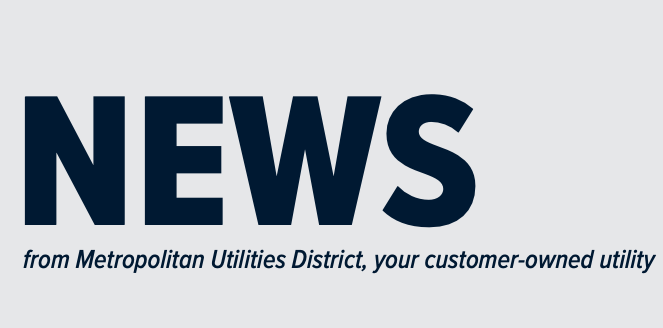October 2021 Bill Insert: Prepare for Heating Season

NEW LAW EXEMPTS SALES TAX ON RESIDENTIAL WATER SERVICE
The Nebraska Legislature recently signed into law Legislative Bill 26, which exempts sales tax on residential water sales effective October 1, 2021. This will affect M.U.D. residential water customers. Following is a list of FAQs. As more details about the bill’s impacts are available, we will provide updated information. Who is affected by the law? M.U.D. residential water customers are affected. What will change on my water bill? Your bill will decrease by the amount of sales tax for residential water and service charges. How much can I expect to save on my bill? Residential water customers who use an average of 7 units (CCF) per month will save approximately $2 monthly or $24 annually on city and state sales tax. Does this affect sales tax on sewer charges? No, sewer charges are still subject to city and state sales taxes. Each city served by M.U.D. sets their own sewer rates. M.U.D. is the billing agent for each city. What if my bill covers charges half in September and half in October? The sales tax exemption will apply to any bill issued on or after October 1, 2021, even if all water services were rendered in September. There is no pro rata apportioning of the bill. If the bill is dated October 1 or later, the exemption is applicable.
PREPARE FOR HEATING SEASON
With the arrival of colder weather, make sure your heating and ventilation systems are in proper working order. Schedule a furnace inspection and tune-up with a qualified heating and cooling contractor to maintain a safe and efficient system. Other tips: • Use a clean furnace filter. Standard air filters usually need to be cleaned or changed monthly. Check the owner’s manual. • If a pilot light or burner flame goes out, allow ample time for any gas accumulation to escape before relighting. If the problem continues, call M.U.D. at 402.554.6666, or your heating contractor. • Gas appliances need fresh air for proper combustion. Combustion products need to be vented to the outdoors. Keep flues, ducts and vents attached to appliances and heating systems in good condition and clear of obstructions.
BILLING AGENT OF SEWER, TRASH FEES FOR EFFICIENCIES
Did you know? Each municipality or sewer jurisdiction sets their rates and fees. Sewer charges on your M.U.D. bill are calculated based on the rates designated by the sewer provider for your address. Municipalities include: Bellevue, Bennington, Gretna, La Vista, Omaha (including the unincorporated portion of Douglas County), Ralston and Sarpy County. M.U.D. is the billing agent that invoices and collects sewer use (and some trash) fees and remits them back to the municipalities. Combined invoicing provides more efficient service to sewer users and M.U.D. customers by avoiding unnecessary billings and postage. For more information, visit mudomaha.com and search How to Read My Bill.
CARBON MONOXIDE AWARENESS
Carbon monoxide (CO) is a gas that can be produced by incomplete combustion when carbon-based materials — wood, propane, charcoal, natural gas, oil, gasoline and kerosene — are burned. CO has no odor or color. To prevent CO, have a licensed heating contractor inspect your heating system and appliances every year. CO detectors can provide added protection, however they are not substitutes for proper use and upkeep of appliances. Maintain and inspect detectors to make sure they are in working order. CO symptoms are flu-like: Headaches, dizziness, vomiting or nausea, weakness and tightness of the chest. Be suspicious if all members of your family share the same symptoms and the symptoms clear up when you’re outside the house. If symptoms persist, see a doctor.
IF YOU SUSPECT CO:
• Check to see if anyone is experiencing symptoms of carbon monoxide. If anyone is overcome by CO, call 911. • Do not panic. Get everyone out of the building. • Get help for anyone in need of medical care. • Check for a vehicle or small engine operating in an attached garage or basement. • Open doors and windows to let in fresh air. • Turn the thermostat to the lowest setting. • Turn off all unvented appliances (range, auxiliary heater). • Turn the water heater to the lowest setting. • Check flues for obstructions. • Check for soot around the water heater and furnace. • If you are unable to determine the cause, call a licensed heating contractor or our emergency number, 402.554.7777.
Download the insert






